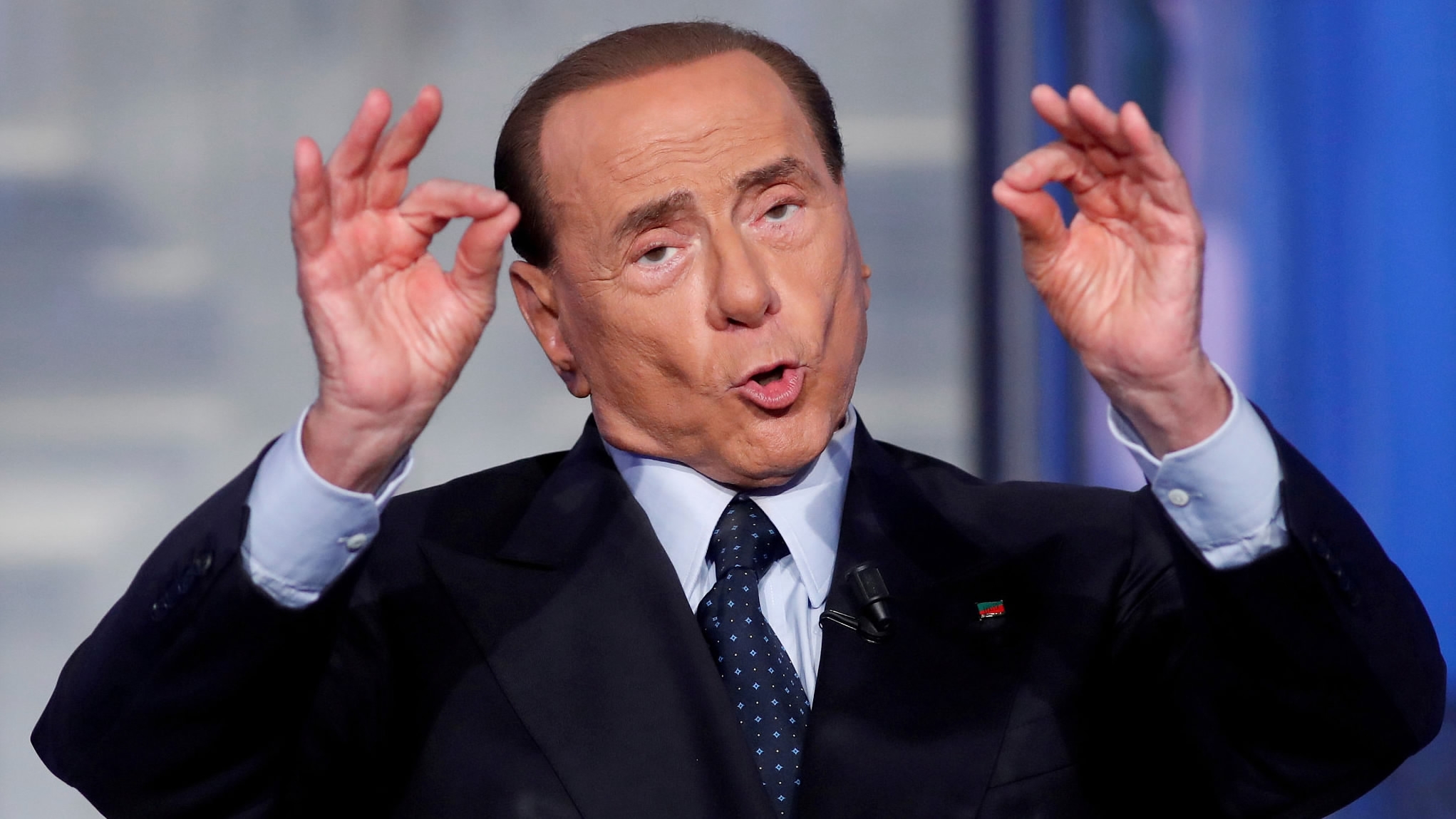The final opinion polls before the Italian parliamentary elections put former prime minister Silvio Berlusconi’s center-right bloc in the lead, but indicate a hung parliament is the most likely result in Europe’s fourth largest economy.
The March 4 election is being fought under a new system and at least one-third of the electorate is thought to be undecided – the final result is hugely unpredictable.
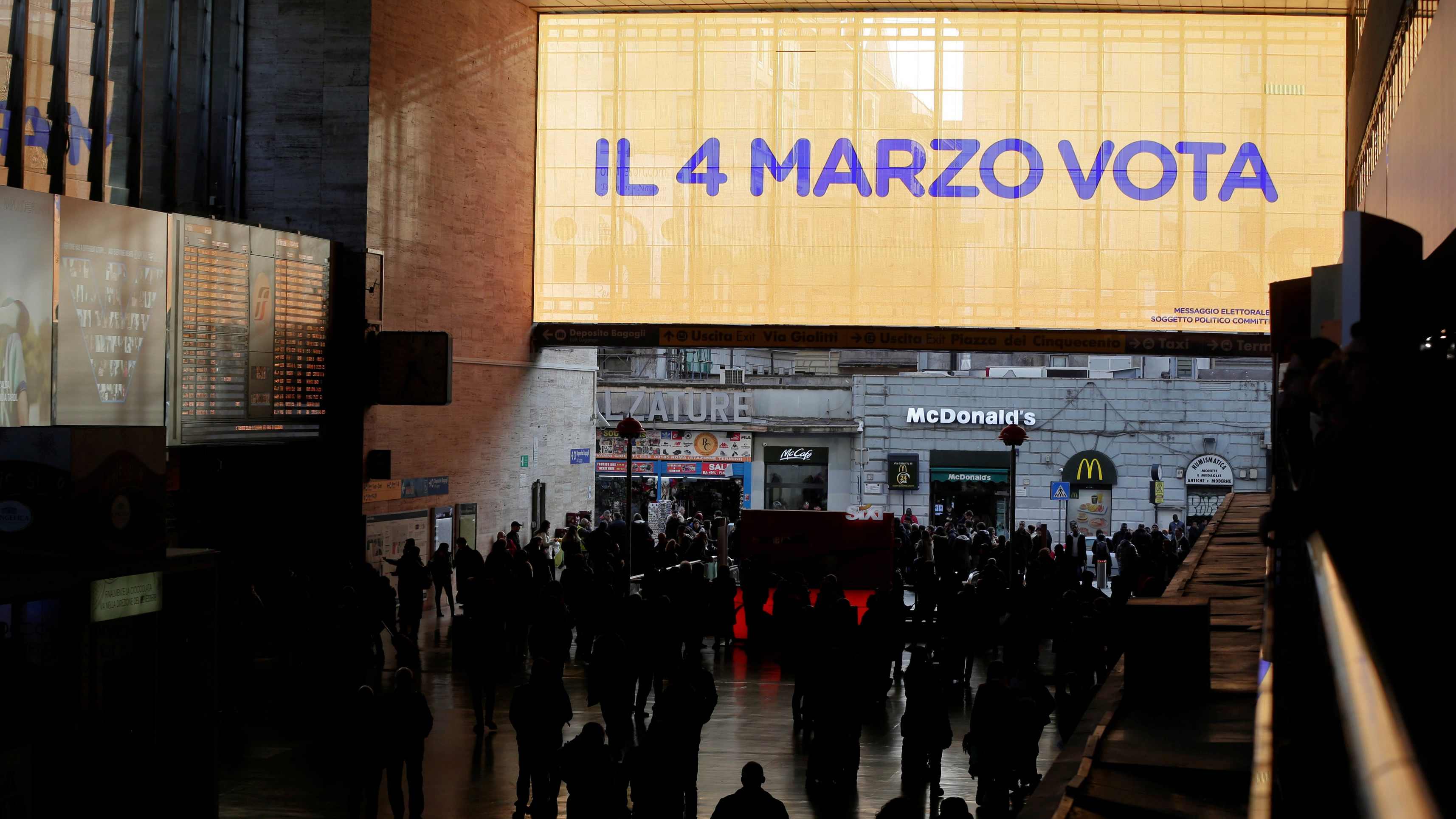
A screen promoting Italy's parliamentary election on March 4 is seen at the
Termini train station in Rome, Italy, February 16, 2018. /Reuters Photo
A screen promoting Italy's parliamentary election on March 4 is seen at the
Termini train station in Rome, Italy, February 16, 2018. /Reuters Photo
Although there are too many variables for pollsters to confidently forecast the outcome, either a coalition or new elections are most likely in a country where euroskepticism is high, recovery from recession slow, and migration has emerged as the headline campaign issue.
Migration, migration, migration
Italy is at the forefront of an influx of migrants from northern Africa, with around 600,000 arriving over the past four years. The issue jumped to the top of the electoral agenda when a far-right extremist shot six African migrants on February 3 in Macerata, central Italy. He had a national flag wrapped around him when he was detained.
The shooting spree followed the arrest of a Nigerian suspected of murdering and dismembering local woman Pamela Mastropietro, an incident which far-right parties have used to promote their anti-immigrant message.
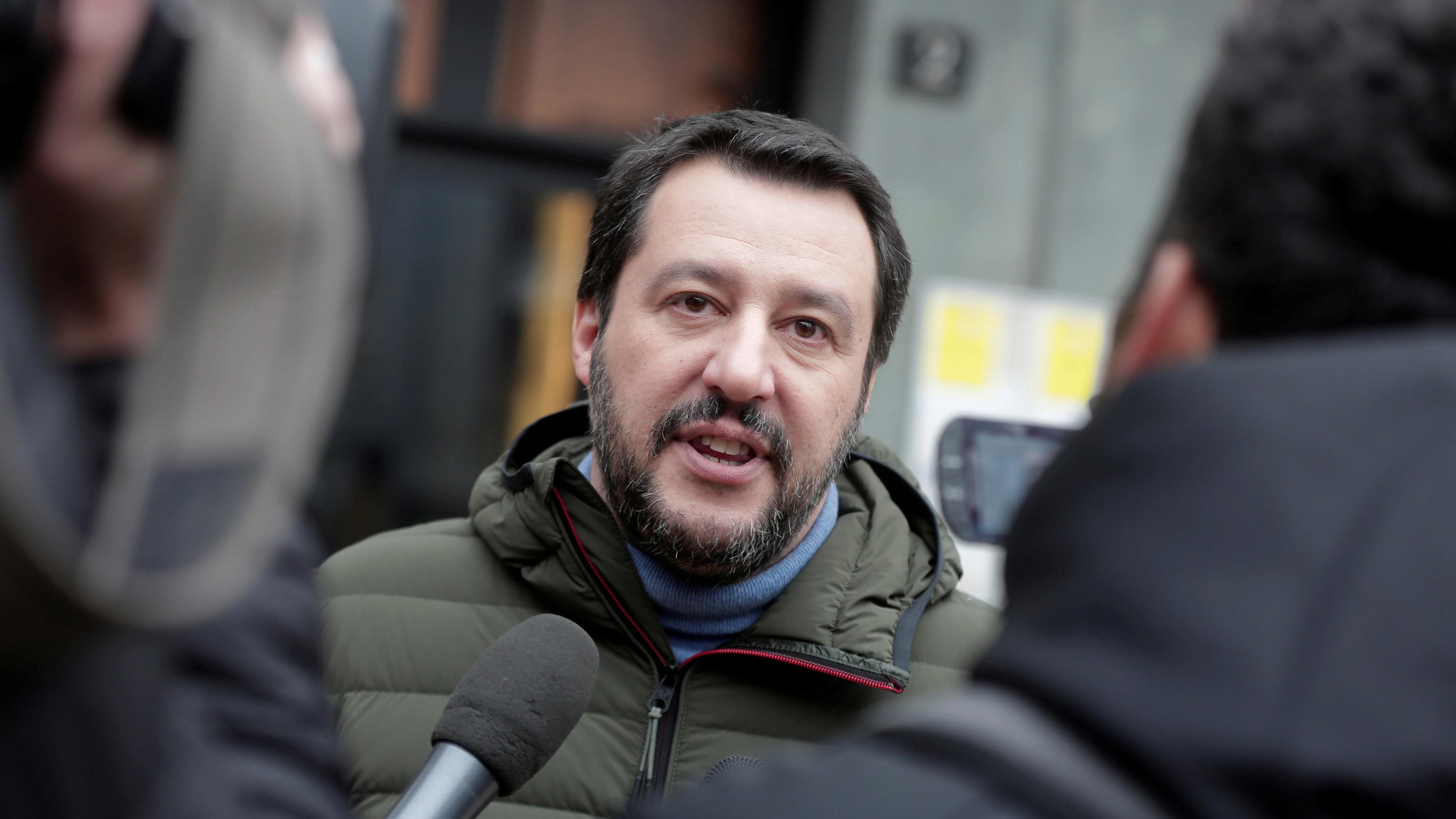
Northern League leader Matteo Salvini talks with reporters at the end of a
political meeting in Milan, Italy, February 17, 2018. /Reuters Photo
Northern League leader Matteo Salvini talks with reporters at the end of a
political meeting in Milan, Italy, February 17, 2018. /Reuters Photo
Berlusconi has been resurrected with the help of a pledge to repatriate 600,000 illegal immigrants, who he claimed “live off trickery and crime.” The popularity of the Northern League and 5-Star Movement has pushed Berlusconi to toughen his stance, Stefan Lehne, a visiting scholar at European think-tank Carnegie Europe, told Euronews.
The current government, led by Paolo Gentiloni since the resignation of Matteo Renzi in late 2016, has already taken steps to reduce the number of migrant arrivals. The Northern League, led by Matteo Salvini, has promised to force around 400,000 migrants back to their countries of origin.
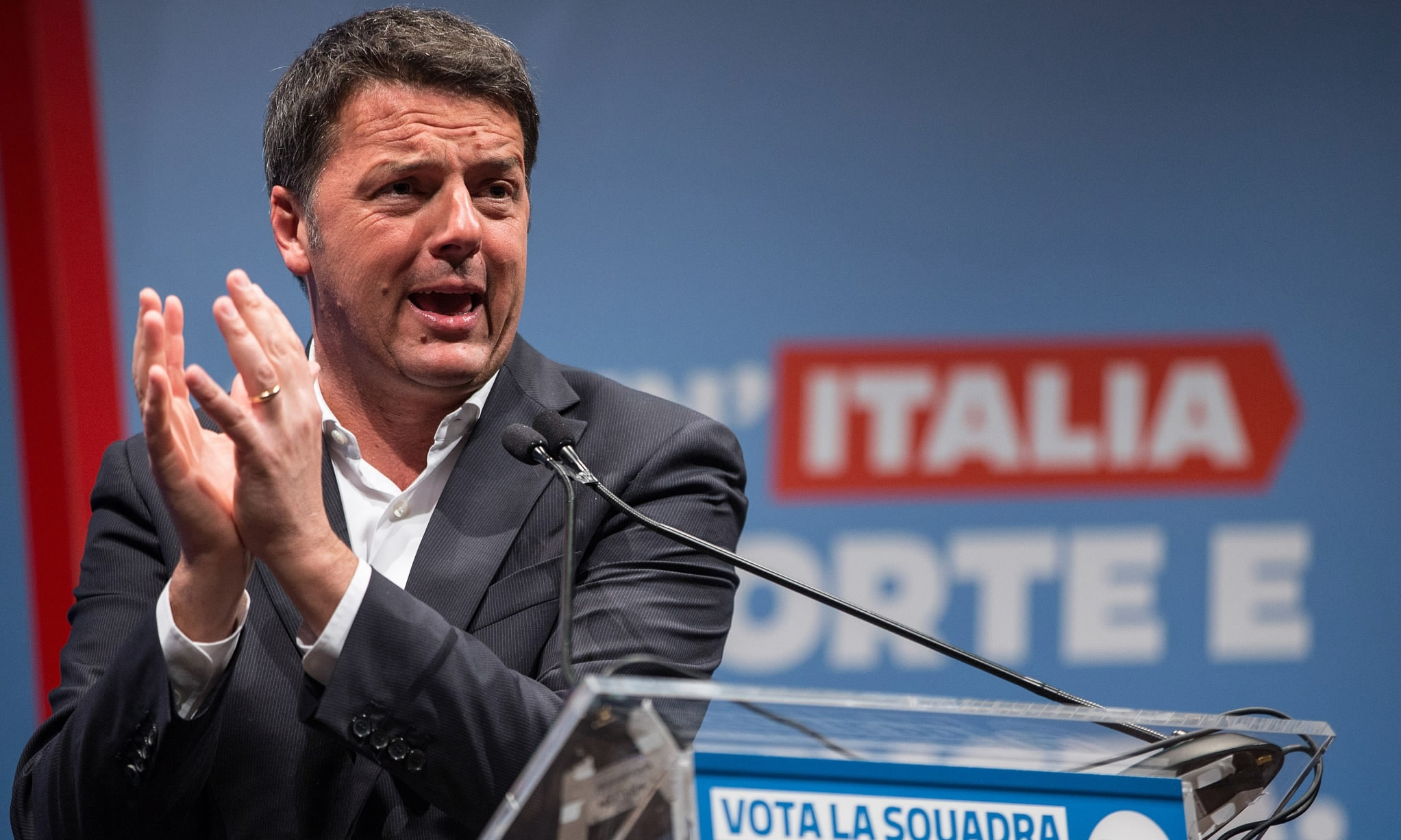
Matteo Renzi, leader of Italy's Democratic Party, delivers a speech at a campaign event in Florence, Italy, February 12, 2018. /VCG Photo
Matteo Renzi, leader of Italy's Democratic Party, delivers a speech at a campaign event in Florence, Italy, February 12, 2018. /VCG Photo
Former foreign minister Emma Bonino, who has made a late entry into the race with new party Piu Europa, has warned promises made by all parties on migration would be “blown out like candles” once campaigning ends.
High debt, high unemployment
Italy has public debt levels at 135 percent of GDP, a troubled banking system, a slow-growth economy and almost one in three work-age under 25s are out of a job.
Europe has been a dominant theme of the election, and the results could have serious consequences for the EU bloc. Forza Italia and the Northern League have argued for a “parallel currency” to be used in Italy, keeping the euro only for international trade.
The 5-Star Movement has called for the EU’s fiscal compact – and agreement to coordinate EU members’ budget policies – to be renegotiated and is keen to pull Italy out of the euro.
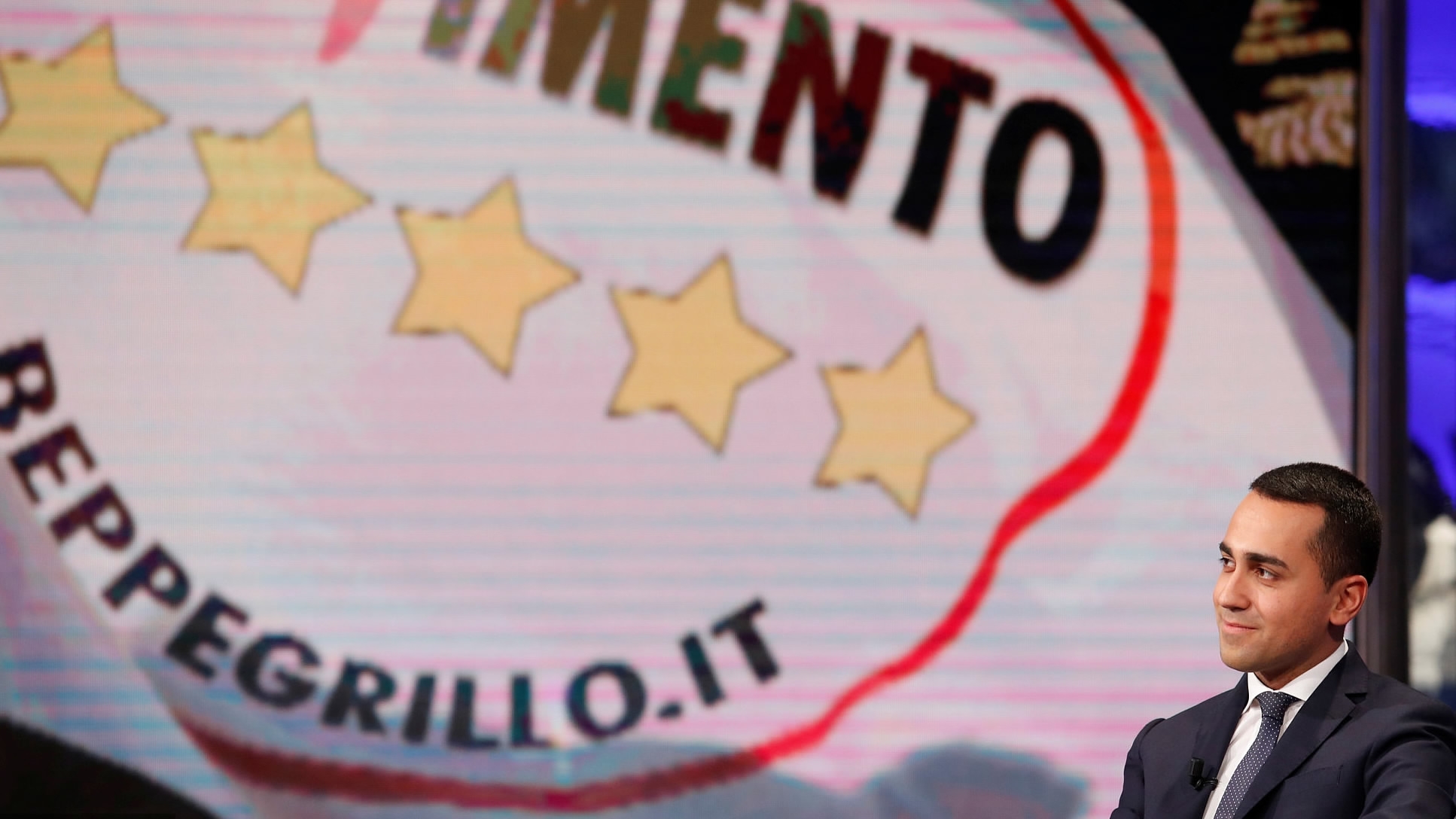
5-Star Movement leader Luigi Di Maio in Rome, Italy, January 23, 2018. /VCG Photo
5-Star Movement leader Luigi Di Maio in Rome, Italy, January 23, 2018. /VCG Photo
A controversy over an increased number of compulsory vaccinations has also been a hot topic, after the number of obligatory childhood vaccinations was increased from four to 10 last year. Populist parties have questioned the science behind the decision and claimed the inoculations could have side effects.
New system, uncertain results
Pollsters expect any government to require about 40 percent of the vote to secure a working majority, according to Reuters. The new system no longer guarantees a majority to any grouping that meets a 40 percent threshold, however.
Sixty-one percent of seats will be awarded by proportional representation on a national basis; 37 percent will be elected in single-member constituencies under first-past-the-post. Italians living overseas will elect the remaining 2 percent of lawmakers.
How could the election pan out?
Berlusconi’s Forza Italia party is running with two far-right allies, the Northern League and Brothers of Italy. Polling puts the center-right bloc on around 36 percent. The former prime minister cannot personally run for office due to a 2013 tax fraud conviction, but could return when a ban is lifted next year. He has not named a candidate for prime minister.
The anti-establishment 5-Star Movement, led by 31-year-old Luigi Di Maio, is expected to become the largest single party with around 28 percent. It’s unclear whether it will be willing to form the alliance it would likely require to enter government.
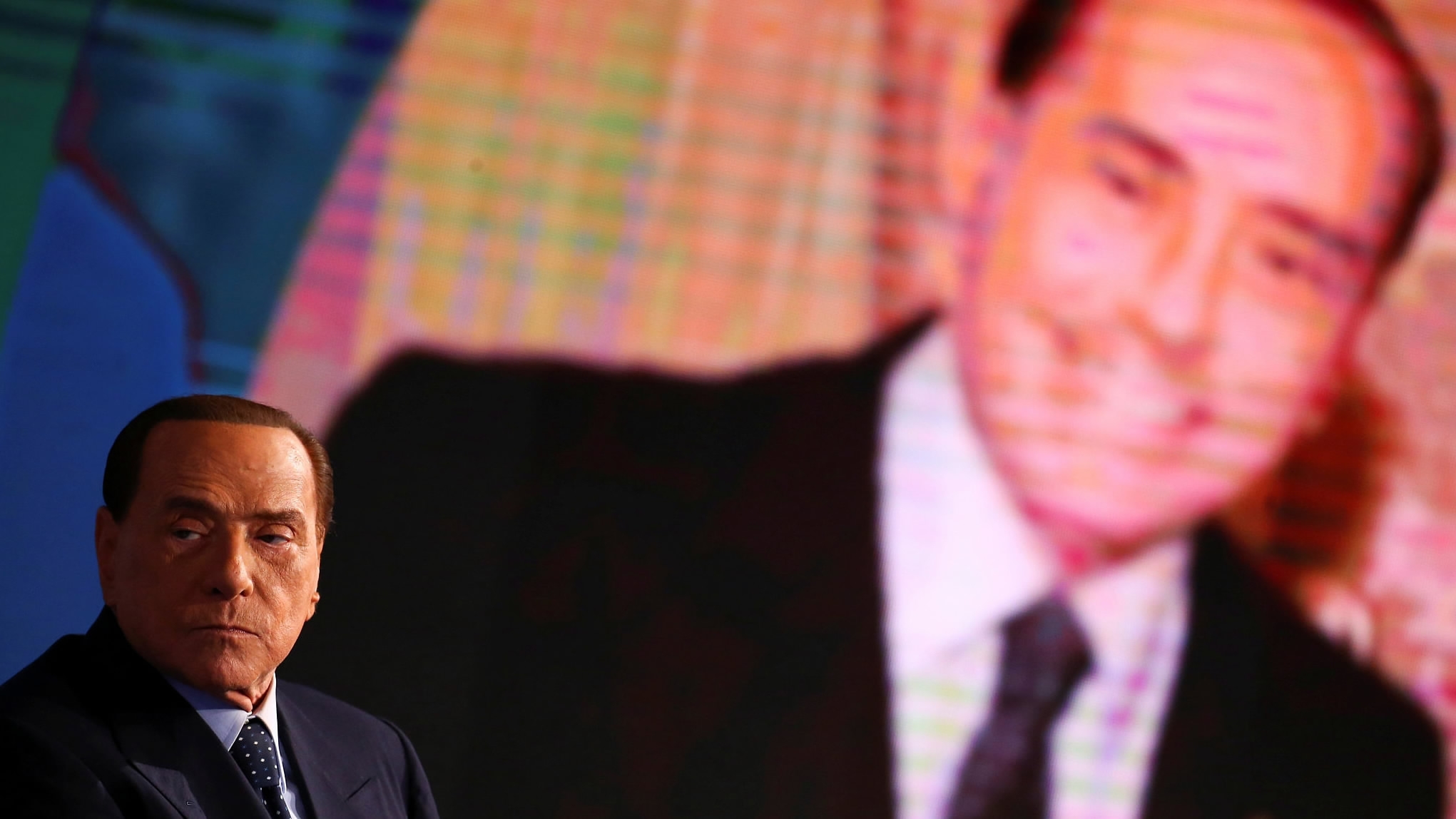
Italy's former prime minister Silvio Berlusconi looks on during the taping of a television talk show in Rome, Italy, February 14, 2018. /VCG photo
Italy's former prime minister Silvio Berlusconi looks on during the taping of a television talk show in Rome, Italy, February 14, 2018. /VCG photo
The governing Democratic Party, led by former prime minister Renzi, is on around 23 percent, polls show. In a center-left alliance with smaller parties – as it currently governs – it reaches roughly 28 percent.
The possibilities for a new coalition if no party achieves an overall majority are broad: a “grand coalition” style arrangement featuring Forza Italia and the Democratic Party; an alliance between left-leaning 5-Star and the far-right Northern League, or even four-term prime minister Berlusconi's party.
If no one party or alliance emerges victorious, President Sergio Mattarella could try to install a technocrat or coalition government with broad support in parliament – possibly led by current prime minister Gentiloni – or call a new election.

